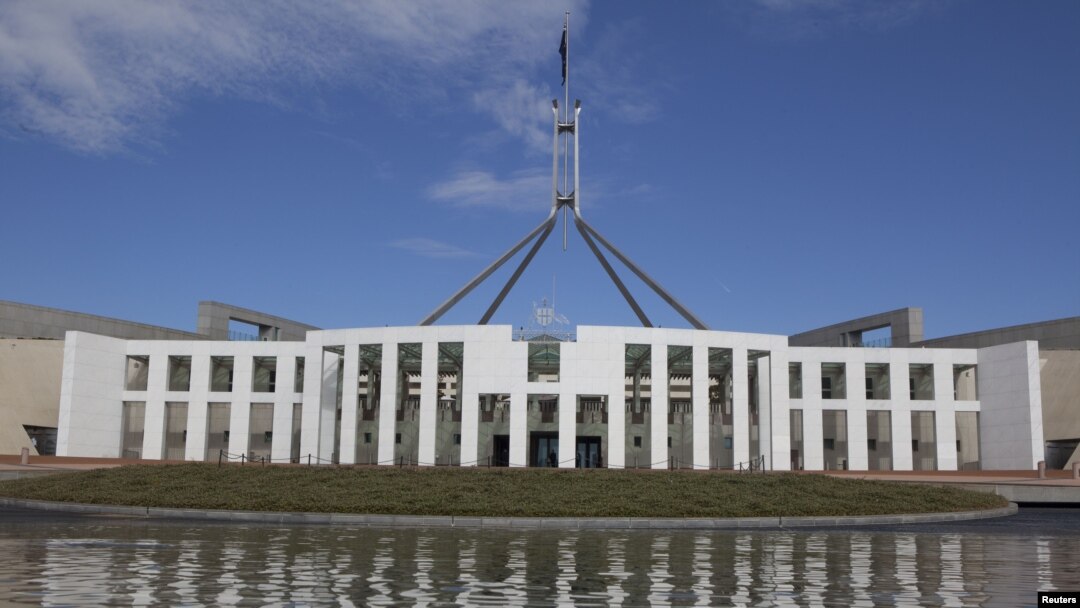Australian lawmakers remain deadlocked over the divisive issue of asylum seekers, after the Senate rejected a bill Thursday that would have allowed Australia-bound migrants to be sent offshore for processing.
The bill had narrowly passed the House of Representatives Wednesday following an emotional debate amplified by two deadly sinkings of asylum seeker boats in less than a week.
More than 90 people are believed to have died last week when their boat capsized off Australia's remote Christmas Island. On Wednesday, another boat overturned in the same area, killing at least four people.
Following several hours of sometimes tearful arguments, the upper house defeated the compromise bill that would have enabled the government to deport asylum seekers to a range of countries in Southeast Asia and the Pacific.
Both sides of Australian politics agree that offshore processing would help deter the thousands of migrants from making the dangerous sea journey each year, but they disagree on where the migrants should be sent.
The rejected bill would have revived a deal reached last year to send new boat arrivals to Malaysia in exchange for accepting U.N.-recognized refugees living there.
But Australia's opposition says asylum seekers' rights may not be respected in Malaysia, since it has not signed the U.N. convention on refugees. The opposition instead favors the use of an offshore refugee camp on the Pacific island, Nauru.
The government had planned to implement the Malaysian deal without parliamentary approval, but was forced to seek a compromise deal after the High Court ruled last year that such a move would be illegal.
Donald Rothwell, an international law expert at the Australian National University, says the latest bill attempted to get around the ruling.
"[The legislation] would seek to circumvent the high court ruling and put in place a mechanism under Australian law under which the so-called Malaysian solution could be revived," he said.
Rothwell says Australia deports those refugees who are denied entry, but not until after a potentially lengthy appeal process. He says that number remains very small, with most refugees eventually achieving refugee status.
Australia is a major destination for people fleeing impoverished, war-torn countries such as Afghanistan, Iraq and Sri Lanka. Many of them are crammed into crowded detention centers on Christmas Island and the Australian mainland.
The U.N. refugee agency says Australia received 11,800 claims for asylum in 2011, compared with 441,000 claims globally. This year, Australian authorities have detected more than 50 boats carrying over 4,000 refugees.
The bill had narrowly passed the House of Representatives Wednesday following an emotional debate amplified by two deadly sinkings of asylum seeker boats in less than a week.
More than 90 people are believed to have died last week when their boat capsized off Australia's remote Christmas Island. On Wednesday, another boat overturned in the same area, killing at least four people.
Following several hours of sometimes tearful arguments, the upper house defeated the compromise bill that would have enabled the government to deport asylum seekers to a range of countries in Southeast Asia and the Pacific.
Both sides of Australian politics agree that offshore processing would help deter the thousands of migrants from making the dangerous sea journey each year, but they disagree on where the migrants should be sent.
The rejected bill would have revived a deal reached last year to send new boat arrivals to Malaysia in exchange for accepting U.N.-recognized refugees living there.
But Australia's opposition says asylum seekers' rights may not be respected in Malaysia, since it has not signed the U.N. convention on refugees. The opposition instead favors the use of an offshore refugee camp on the Pacific island, Nauru.
The government had planned to implement the Malaysian deal without parliamentary approval, but was forced to seek a compromise deal after the High Court ruled last year that such a move would be illegal.
Donald Rothwell, an international law expert at the Australian National University, says the latest bill attempted to get around the ruling.
"[The legislation] would seek to circumvent the high court ruling and put in place a mechanism under Australian law under which the so-called Malaysian solution could be revived," he said.
Rothwell says Australia deports those refugees who are denied entry, but not until after a potentially lengthy appeal process. He says that number remains very small, with most refugees eventually achieving refugee status.
Australia is a major destination for people fleeing impoverished, war-torn countries such as Afghanistan, Iraq and Sri Lanka. Many of them are crammed into crowded detention centers on Christmas Island and the Australian mainland.
The U.N. refugee agency says Australia received 11,800 claims for asylum in 2011, compared with 441,000 claims globally. This year, Australian authorities have detected more than 50 boats carrying over 4,000 refugees.


